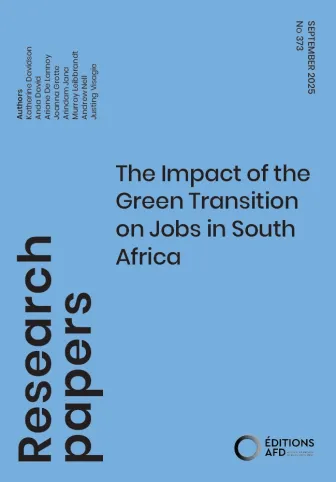Share the page
The Impact of the Green Transition on Jobs in South Africa
Published on

One of the key issues in policy discussions over addressing climate concerns the ways in which countries need to and can balance the combating of climate change with job creation and economic development. South Africa’s transition to a low-carbon economy is essential and urgent, as one of the largest carbon emitters among low and middle-income countries and a country with a heavy reliance on coal-based energy production. From the outset, an essential principle guiding this transition has been to ensure that it is just and equitable for all South Africans. However, it has been hard to give effect to this in practice; one important example being that achieving this requires acknowledging and addressing the potential regional disparities in the effects of the shift to a green economy. In this paper we seek to contribute towards an evidence base to ground by employing a comprehensive framework that combines bottom-up and top-down approaches to estimating ‘green jobs’ in order to analyse how the transition may affect workers in different geographic areas. To capture the spatial dimension of the transition, we draw on Spatial Tax Panel data using provinces and municipalities as our units of analysis. Given sample size limitations, the specific findings should be treated as illustrative examples of how the framework can be operationalised. Even so, they do highlight the imperative to consider the likelihood of large geographic variation in the impacts of the green transition.
Useful Information
-
Authors
-
Katherine Davidson, Ariane De Lannoy, Joanna Grotte, Arindam Jana, Murray Leibbrandt, Andrew Nell, Justing Visagie, Anda DAVID
-
Coordinators
-
Edition
-
373
-
Number of pages
-
52
-
ISSN
-
2492 - 2846
-
Collection
-
Research Papers
-
Languages
-
English
